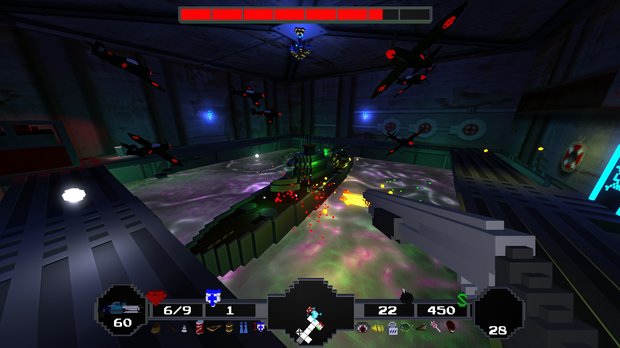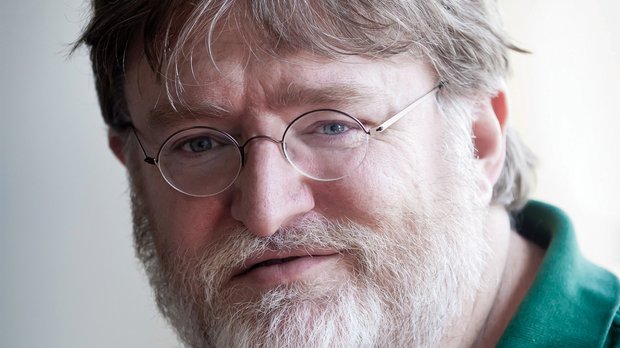Valve co-founder gets death threat from developer, teaches a hard lesson
Death threats are a distressingly common occurrence in the games industry. But it's not every day that a developer threatens to kill Valve co-founder Gabe Newell and consequently gets his game pulled from Steam on the day of its release.
There is, of course, more to the story. Say you've worked on a video game for years. You crafted a project from nothing, you almost secured a publishing deal but managed to fight your way through Steam Greenlight and Early Access when it fell through. Now, after a few more hiccups, you're ready to push the big button marked "publish" and watch your hard work appear on the front page of the Steam Store.

And it does. But it still says "Early Access" in the banner, which might turn off some potential customers. What would you do, having this moment of glory tainted after months of struggle? Paranautical Activity co-creator Mike Maulbeck got mad on the internet. He tweeted several criticisms about Steam's developer policies and its hold on the PC gaming market, which is a fair thing to do. Then he goofed: "I am going to kill gabe newell. He is going to die."
Valve pulled his game in response to the tweet, which may seem like a harsh response to an idle threat. Few reasonable people would expect Maulbeck to follow through on it. He was just, y'know, blowing off Steam.
But it's not on Valve (or any other corporation or person or sentient lifeform) to gauge the level of intent behind a death threat; to balance concern for its employee's life with the desire to not make a fuss. It is on Valve to make sure all of its relationships with developers are conducted professionally, which doesn't leave much room for one of them throwing a tantrum and pledging to kill its co-founder.
So how did it come to this? Well, Maulbeck, Valve, and--yes--GamesRadar all operate in an industry that regularly uses terms like "murder", "death", and "explosion" as compound modifiers in trailers and press releases. We use terms like "rage-quitting" and "nerfing" in earnest discussions of problematic game elements.

Maulbeck ruined his game's chances for success (he said he sold 12 copies on non-Steam platforms like Humble Bundle and Desura as of yesterday, when he was "selling more than that a minute on Steam") by making an adolescent public response to professional difficulties. He's since resigned. Before we tell him to "QQ moar" and accept the consequences for his poor judgement, we should take a hard look at the adolescent way much of this industry makes, sells, and thinks about games.
Sign up to the GamesRadar+ Newsletter
Weekly digests, tales from the communities you love, and more
It's not like we need to abandon the idea of explosions and over-the-top violence as fun spectacles: if Jerry Bruckheimer and Bugs Bunny can do it, why not us? But as long as this multi-billion-dollar industry leans so heavily on the stuff we liked as teenagers, this kind of culture clash between professionalism and hormone-soaked exuberance is inevitable. And no matter the context, death threats are never ok.
I got a BA in journalism from Central Michigan University - though the best education I received there was from CM Life, its student-run newspaper. Long before that, I started pursuing my degree in video games by bugging my older brother to let me play Zelda on the Super Nintendo. I've previously been a news intern for GameSpot, a news writer for CVG, and now I'm a staff writer here at GamesRadar.



